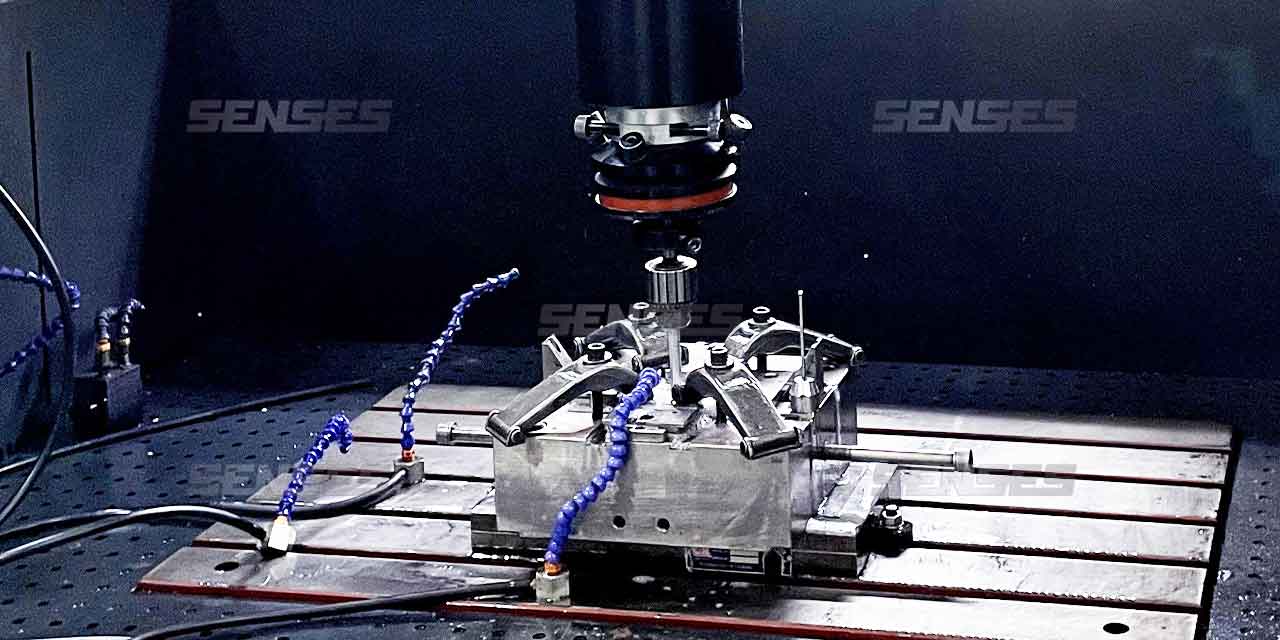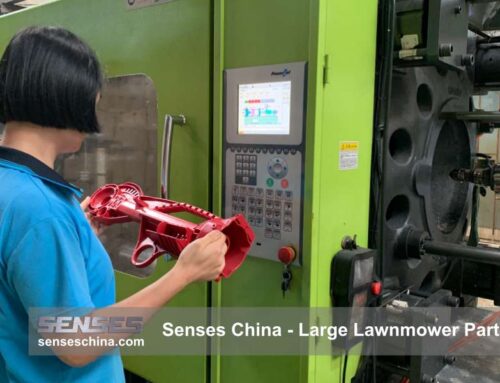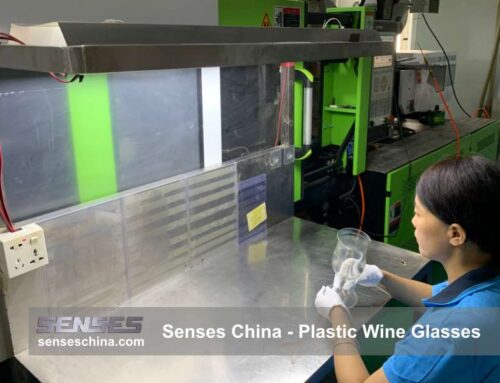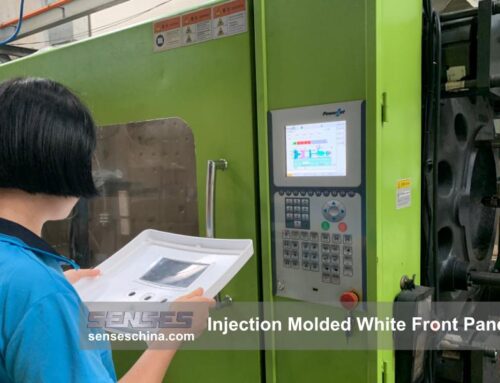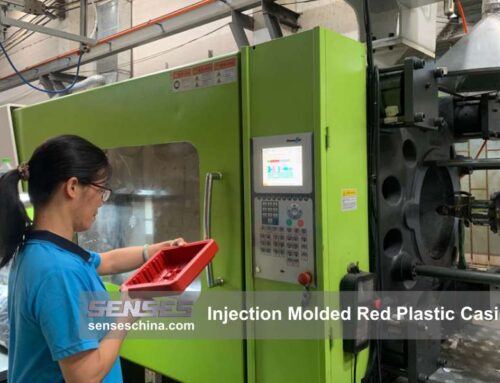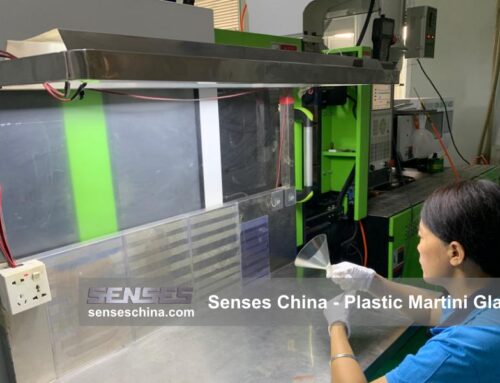Custom plastic molds are specialized forms or frames used in the plastic manufacturing process to shape and create plastic products according to specific designs and requirements. These molds are tailored to meet unique needs, ensuring that the final plastic product matches the desired size, shape, texture, and functionality.
Understanding Custom Plastic Molds
Custom plastic molds might sound complex, but they’re an integral part of creating many of the items we use daily. Essentially, these molds are unique, one-of-a-kind tools that shape molten plastic into specific products.
When a company needs a particular plastic part – whether it’s for a new type of bottle, a component of a medical device, or a part of your car’s dashboard – they turn to custom plastic molds. Each mold is specially designed and engineered to produce a specific item with exact dimensions, shapes, and features.
The process of creating custom molds
Creating custom molds is a detailed and intricate process that involves several critical steps, from initial design to the final testing phase:
Design Phase:
- Initial Consultation: This step involves discussions between the client and the mold manufacturer to understand the requirements and specifications of the desired product.
- Computer-Aided Design (CAD): Using CAD software, engineers create a detailed 3D model of the mold based on the product specifications. This model includes all the nuances of the desired product, such as its size, shape, texture, and intricate details.
- Simulation: Advanced software simulates the molding process using the CAD model to identify potential issues in the design, such as uneven cooling, material flow problems, or areas of high stress that could lead to defects.
Prototyping Phase:
- Rapid Prototyping: This allows for hands-on evaluation and testing of the design before the final mold is manufactured.
- Review and Refinement: The prototype is examined for any discrepancies from the original design and functionality requirements. Necessary adjustments are made to the mold design based on this evaluation.
Mold Manufacturing Phase:
- Material Selection: The appropriate material for the mold is selected based on the required durability, precision, and production volume.
- Machining: Using precision machining tools like CNC (Computer Numerical Control) machines, the mold is carved out from the selected material according to the final design.
- Assembly: The mold is assembled from various components, including cores, cavities, and ejector systems, all of which must align perfectly to function as intended.
Testing Phase:
- Mold Trial Run: The completed mold is installed in an injection molding machine, and a trial run is performed to produce sample parts.
- Quality Inspection: The sample parts are inspected for accuracy, physical properties, and surface finish, comparing them against the design specifications.
- Fine-Tuning: Should there be any defects in the sample parts, the mold will need adjustments. This can include tweaking the mold temperature, altering the injection speed, or making direct modifications to the mold to address these issues and ensure the final product meets quality standards.
Final Approval and Production:
Once the sample parts align perfectly with all the required specifications and quality standards, the custom mold is ready for the next big step. It enters full-scale production, where it’s used to efficiently manufacture the plastic components, exactly according to the client’s needs.

Materials commonly used for custom molds
Materials used for custom molds vary based on the requirements of the final product, the expected volume of production, and the specific plastic molding process being used. Here are some commonly used materials:
Steel:
This is a popular choice for custom molds due to its high strength and durability. There are various types of steel used in mold making, including:
| Steel Type | Characteristics | Applications |
|---|---|---|
| P20 Steel | Good balance between cost, hardness, and durability. Doesn’t require heat treat. | Medium to high volume production molds. |
| H13 Steel | High hardness, excellent thermal fatigue resistance. | High volume production, fine detail molds. |
| Stainless Steel | High corrosion resistance, good for sterile applications. | Medical, food industry molds. |
| S7 Steel | High impact resistance, good wear resistance. | Molds subject to shock and impact. |
| 4140 Steel | Good balance of strength, toughness, and wear resistance. | General purpose molds, industrial applications. |
| A2 Tool Steel | Good wear resistance, excellent stability during heat treatment. | High precision molds, cold work applications. |
| D2 Tool Steel | High wear resistance, high carbon content. | High volume, abrasive materials molding. |
| NAK80 Steel | Pre-hardened, polished mirror finish, no need for heat treatment. | High-quality surface, optical products. |
| M2 Steel | High speed steel, very high wear resistance. | Precision parts, thin wall molds. |
| 420 Stainless Steel | High chromium content, excellent corrosion resistance, and polishability. | Cosmetic molds, medical applications. |
Aluminum:
This material is favored for its excellent thermal conductivity and lighter weight compared to steel. Aluminum molds heat up and cool down quickly, reducing cycle times. They are generally less expensive and are suitable for lower volume production or prototypes.
The choice of material depends on the specific needs of the molding project, including the level of detail required in the molded parts, the number of parts to be produced, and the budget constraints. Each material has its own set of properties that make it more suitable for certain applications over others.
If you have any questions or require expert assistance to make the right decision for your project, please don’t hesitate to contact us. Our team is here to provide the support and guidance you need to ensure your project’s success.
Advantages of Custom Plastic Molds
Custom molds bring numerous advantages, making them a top choice for different industries. Here’s how they stand out:
- Cost-Efficiency: Although initially more expensive, these specialized molds can become more economical over time, especially for high-volume production. They minimize waste and enhance production efficiency, lowering the cost per part.
- Speed to Market: The journey from design to production is quicker, enabling faster product launches. This is crucial in fast-moving industries.
- Reduced Risk of Error: Tailoring the tool to exact product specifications lowers the risk of manufacturing errors, leading to higher customer satisfaction and lower quality control costs.
- Material Compatibility: They can be designed for a wide range of materials, offering flexibility to select the most suitable one for the product’s requirements.
Importance and benefits of custom plastic molds in various industries

First off, think about all the cars zooming around. Custom molds are what make all those intricate and durable plastic parts in your car. Things like the dashboard, lights, and even parts under the hood are all made with these molds. They’re a big deal because they help keep costs down by making parts that fit perfectly right off the bat.
Then there’s the medical world, which is super important. Custom molds are used to make all sorts of medical devices and tools that need to be super precise and safe. We’re talking about everything from surgical instruments to the little containers that hold your medicine.
In the world of stuff we use every day, like gadgets, toys, and all sorts of household items, custom molds make sure everything looks cool and works right. They let companies quickly change things up depending on what people like or want to buy, which is pretty neat.
Don’t forget about packaging! Custom molds help make all sorts of packaging that protect products and make them look attractive on the shelves. They can even help make packaging that’s better for the environment.
In electronics, these molds are behind the scenes making all the tiny, complicated parts that go into your smartphones, laptops, and other gadgets. They have to be super precise, which is exactly what custom molds are good at.
Custom plastic molds are pretty much everywhere, even if we don’t see them directly. They help make a lot of the things we use every day, from our cars and phones to our medicine and food packaging. They’re essential for making products just right, helping companies adapt to what we need and like, and even keeping costs down. Basically, they’re a big part of why so many products around us are affordable, look good, and work well.
Choosing the Right Custom Plastic Mold Manufacturer
If someone is starting a new project and needs a custom plastic mold, we at Senses, a renowned Custom Plastic Molds Manufacturer, are here to help. Our company has built a strong reputation in the industry, supported by our extensive experience and a lengthy list of satisfied clients from various sectors.
Quality is a key focus for us at Senses. As a leading Custom Plastic Molds Manufacturer, we ensure that every mold meets stringent standards, offering our clients reliability and peace of mind. We are also known for adhering to our timelines, which is crucial for effective project management and timely market entries.
Effective communication is another strong point for us. We maintain open lines of communication throughout the manufacturing process, ensuring our clients are well-informed and involved. Moreover, we are recognized for our comprehensive after-sales support, offering our clients additional security and assistance post-delivery.
Senses: Your Partner in Injection Molding Solutions
Senses is an ISO 9001:2015 certified plastic injection molding company, offering a comprehensive array of services including mold and part design, prototyping, small-batch production, and full-scale manufacturing. We serve a diverse range of industries, encompassing automotive, medical, and consumer electronics. Our focus is on ensuring each product we deliver meets the highest standards of quality and functionality.
For personalized solutions and expert consultation, reach out to us today at info@senseschina.com.
